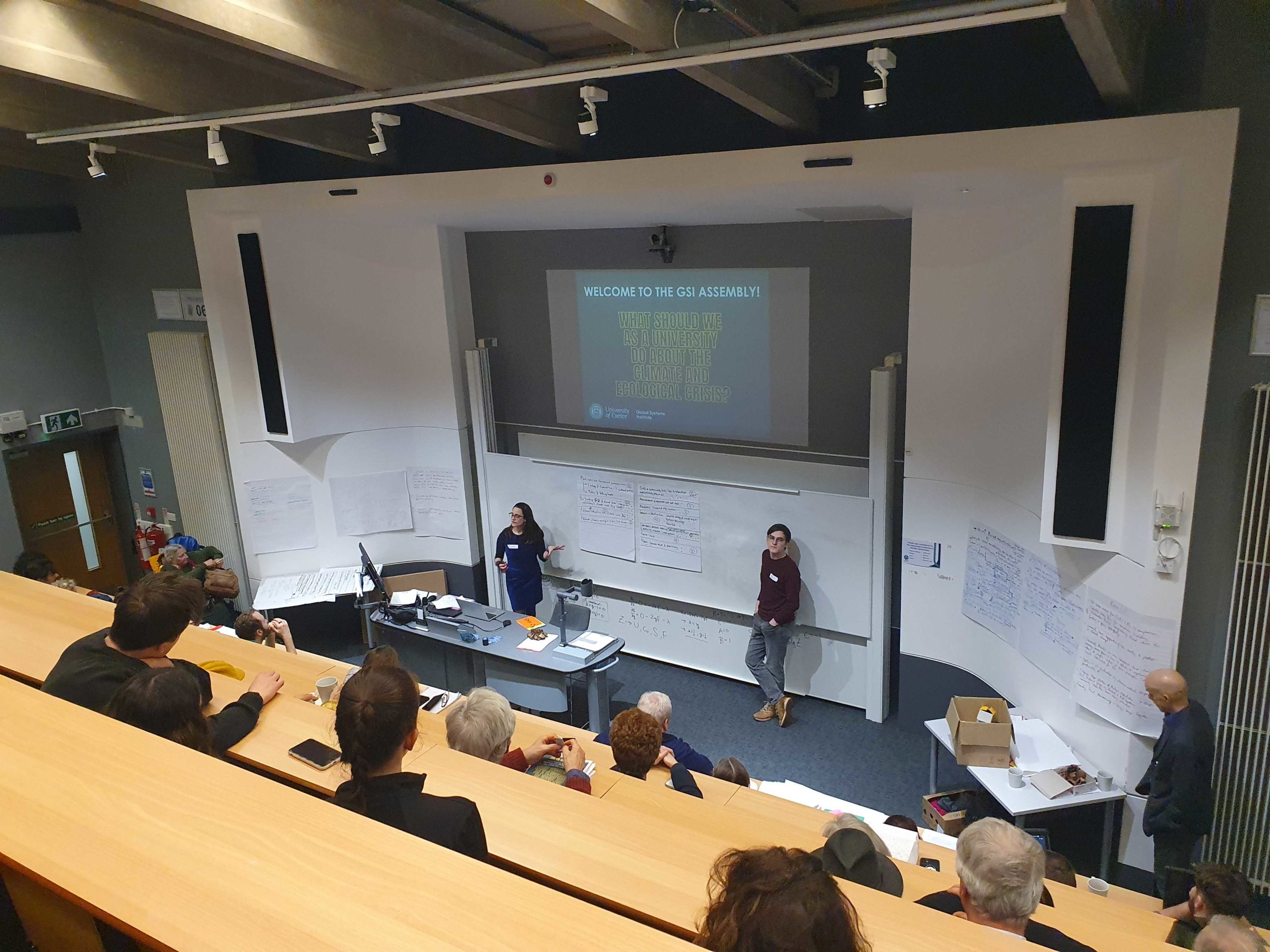By Lola Spragg
Last week the GSI hosted the first of an exciting new series of community assemblies, led by our Assistant Directors Raphaëlle Haywood, Ernesto Schwartz-Marin, and James Dyke. The first assembly encouraged participants from across the University and local community to respond to the question ‘What should we as a University do about the climate and ecological crisis?’.
To facilitate these events, the GSI are working with Faculty for a Future (F4F), who support universities across the UK to set up assemblies such as ours to unlock the institutions transformative potential to navigate social and environmental crises. F4F and their partner Trust the people provided facilitator training in preparation for the event, and the GSI is proud to be a part of F4F’s first cohort of People-Powered Universities, joining a growing group of institutions across the country such as Imperial, Falmouth, East Anglia, and Keele. The GSI assemblies are also feeding into the Humanity Project, a grassroots movement facilitating local Popular Assemblies up and down the country. Attendees of our GSI assembly will be randomly selected to be invited to attend a National Assembly happening later this year, organised by the Humanity Project.
The aim of the first assembly was to create a space for democratic dialogue, empowering participants to share their opinions and lived experiences on equal ground. The GSI wanted to find out precisely what matters to staff, students, and others in the University community, and to allow them to shape the discussions on how they would like to see the University tackle the climate problem. Assistant Director Raphaëlle Haywood said:
“Our role at the GSI is to help facilitate an ongoing conversation that everyone in our community can be a part of… At this time of unprecedented and complex dilemmas, both within the higher education system and globally, we need all of us to be involved and inform the decisions that shape how universities are run and influence the future of life on Earth”
We were delighted to have over 55 people register to attend the inaugural assembly, alongside more than 20 facilitators from the University community. After an introductory speech in which Assistant Director Raphaëlle Haywood lay out the principles that would drive the assembly process, participants and facilitators divided into small break out groups of 5-7 to respond to the question. The group sessions were a great success, with participants sharing equally in discussions, creating a wonderful sense of community and common goal. Facilitators helped to guide the conversations to reach constructive and specific outcomes and ideas, which were later shared with the organisers and facilitators. Whilst participants continued discussions over tea, coffee, and cake, the organisers and facilitators consolidated the primary actions brought forth by each group into 11 distinct actionable measures participants felt the University could take to tackle the climate and ecological crisis. All of those present at the assembly then had the opportunity to vote on the actions they would most like to see the University take on.
The top 3 actions with the most votes were:
- The University should build a community hub or lab to showcase sustainability practices.
- The University should not receive funding from or invest in companies contributing to the climate crisis.
- All education should be addressed through a climate crisis lens.
The GSI plans to host more of these community assemblies from Term 1 academic year 24/25, with each assembly building upon the work of the last. The next assembly will be discussing the most popular actions identified in the first session.
If you are interested in attending the GSI Community Assemblies you can sign up to receive email updates on all of our upcoming events by emailing infoGSI@exeter.ac.uk, and check out the News and Events page on the GSI website: https://www.exeter.ac.uk/research/institutes/gsi/newsandevents/

